Dog dressed in hilarious Halloween costume sparks lots of laughs
A three-year-old pitbull in Austin, Texas, was seen on social media wearing a creative ball-pit costume that sparked lots of laughs from its owner. See Luna in her DIY Halloween costume!
For most kids, Halloween is all about how much candy they can stuff in their bags or buckets.
But for some kids, such as those with autism, the activity can be a little more daunting.
The blue Halloween bucket trend first started in 2018, when Louisiana mom Alicia Plumer took to Facebook indicating that her son, who has autism, would be carrying a blue bucket to indicate his disability.
BLUE HALLOWEEN BUCKETS RAISE AUTISM AWARENESS, MOM'S VIRAL POST SAYS
"If you see someone who appears to be an adult dressed up to trick-or-treat this year carrying this blue bucket, he’s our son!" she wrote. "His name is BJ & he is autistic. While he has the body of a 21-year-old, he loves Halloween."
She added, "Please help us keep his spirit alive and happy. So when you see the blue bucket, share a piece of candy. Spread awareness! These precious people are not ‘too big’ to trick-or-treat."
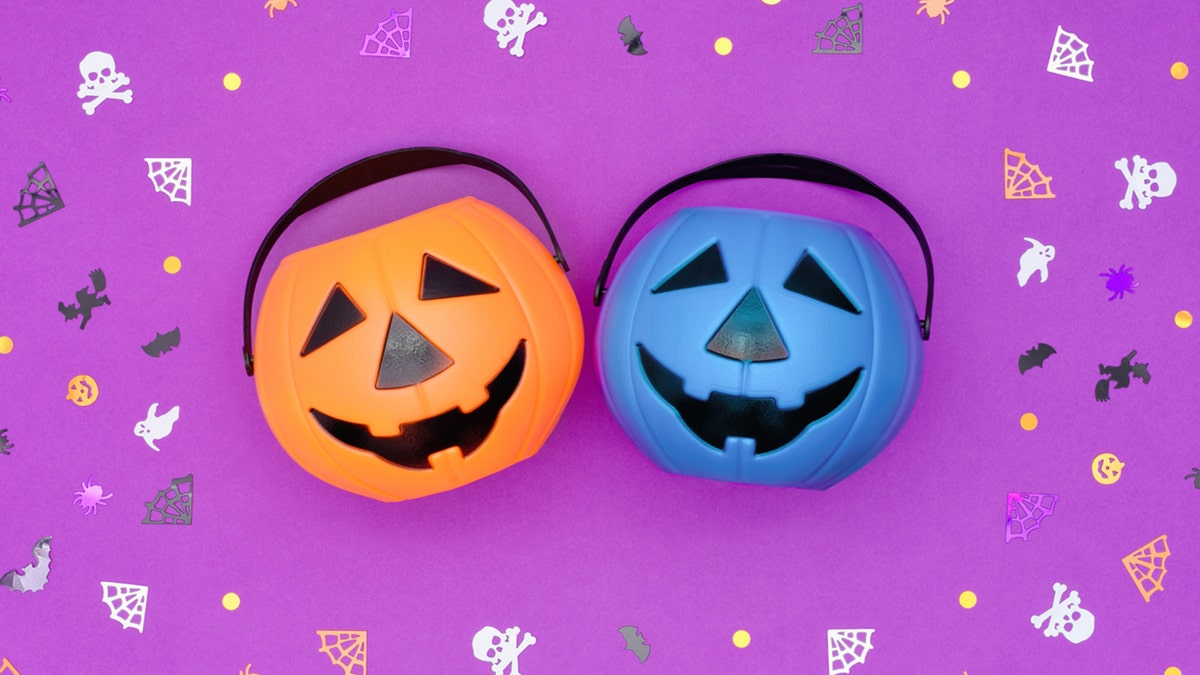
A blue Jack-o'-lantern bucket at Halloween indicates that a child has autism. (iStock)
Another mom, Omairis Taylor, wrote in a 2019 Facebook post that many neighbors expected her nonverbal, autistic son to say "trick-or-treat" to earn candy, leading the mother to explain over and over why he was unable to do so.
Many Facebook users praised the idea of the blue bucket, one commenting how it is "one more tool to broaden the scope of understanding."
Parents across the country and retailers like Walmart have since joined in buying and selling blue Halloween baskets to raise awareness for trick-or-treaters with autism.
The National Autism Association recognized the movement as well, warning in a 2020 blog post that not all parents find the color coding necessary.
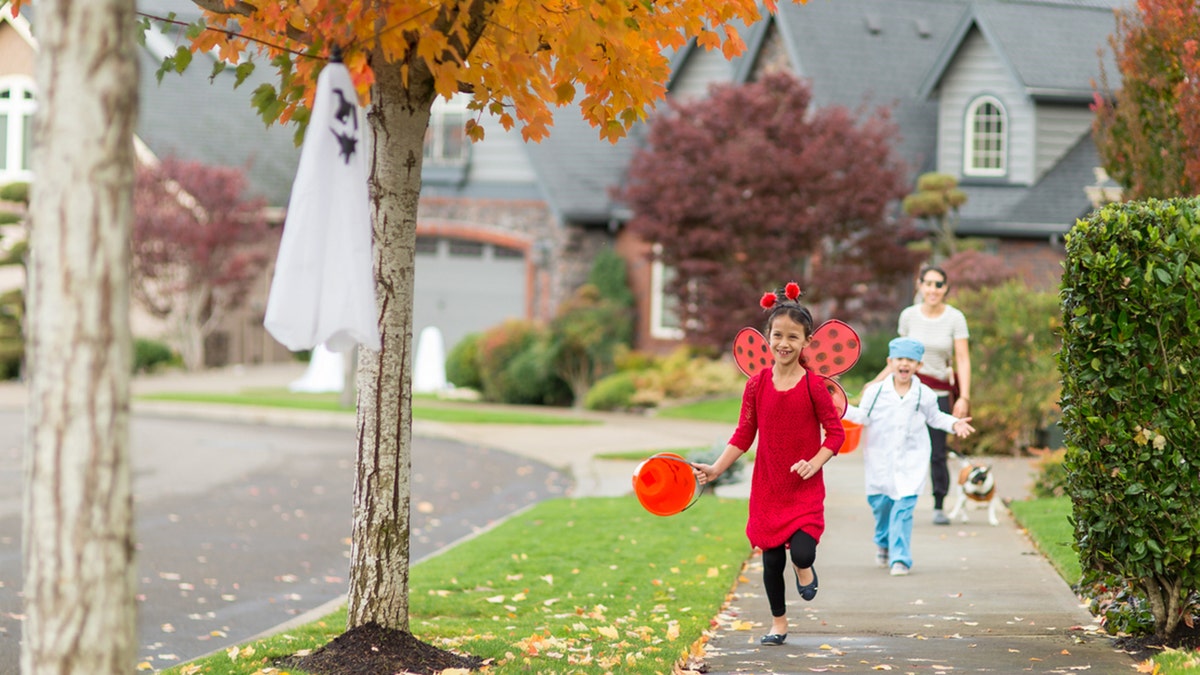
For most kids, Halloween is all about how much candy they can stuff in their bags or buckets. But for some children, such as those with autism, the activity can be a little more daunting. (iStock)
Some parents are concerned that blue buckets unnecessarily point out their child’s disability, and could even make them a target for abuse.
The argument continues this Halloween season, with some X users pointing out the controversy.
"DO NOT BUY YOUR CHILDREN BLUE HALLOWEEN PUMPKIN BUCKETS," one X user posted on Monday.
"This idea, aside from being horribly ableist, as it's intended to denote the child as ‘different’ (read: autistic) harms children w/dietary needs. Teal pumpkins = hypoallergenic needs/options & this idea muddies that message."
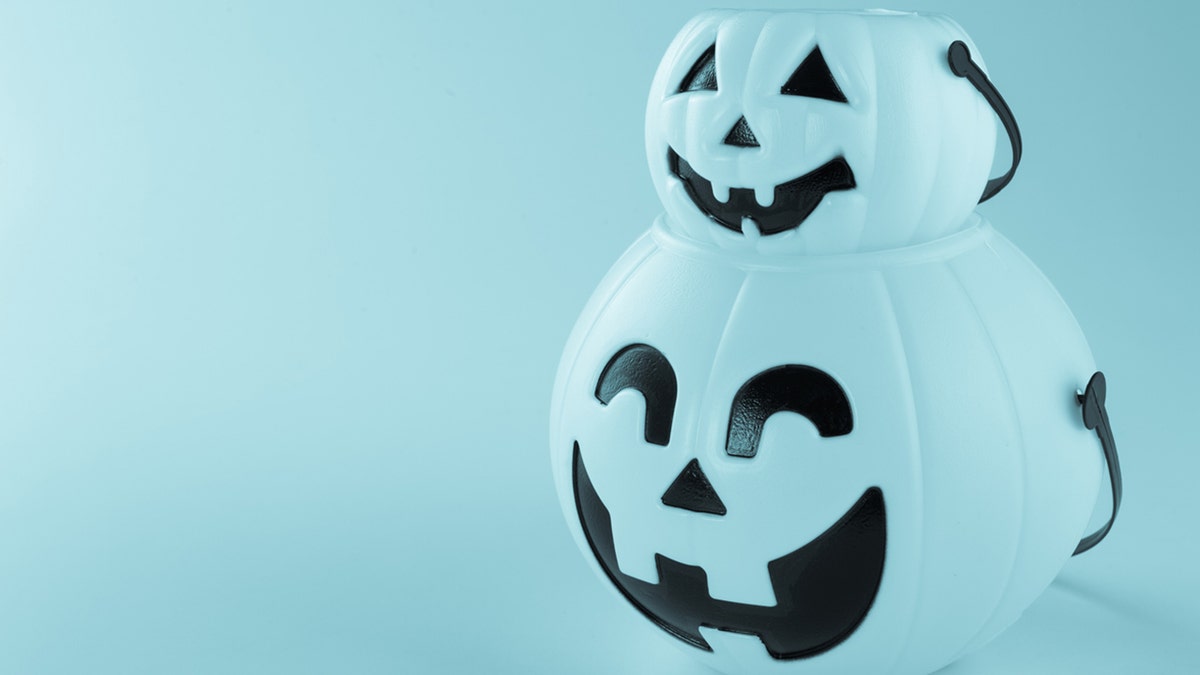
The Teal Pumpkin Project was started by Food Allergy Research & Education (FARE) to raise awareness for kids with food allergies. (iStock)
Another user posted, "I know this has the best of intentions ... But we don't need blue pumpkin buckets for Halloween. Non-verbal kids don't need to be identified during a fun holiday, they just want to participate like everyone else."
Parenting expert and child psychologist Dr. Michele Borba commented on the controversy, telling Fox News Digital that it’s "always advisable not to label a child — unless it’s for a positive reason."
CALIFORNIA MAN WITH SEVERE AUTISM BEATS RUBIK'S CUBE WORLD RECORD: ‘EXUBERANCE IN OUR HEARTS’
"Negative labels can impact a child’s self-confidence," said the California-based psychologist. "But no one knows a child better than a parent."
Borba suggested that parents should consider whether the label hurts or helps their child interact with others.
"For instance, is the child speech delayed? Does he have difficulty interacting with others or expressing his needs? Are others (including his peers) aware of the child’s challenges?" she questioned.
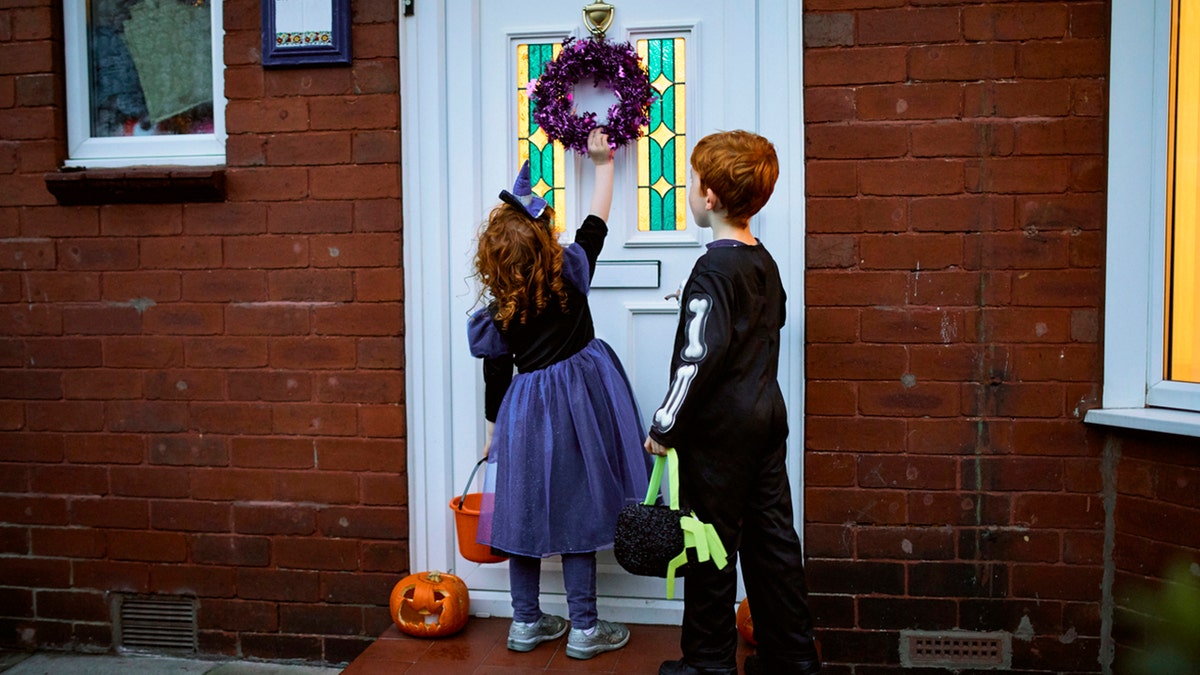
Some parents are concerned that blue buckets unnecessarily point out their child’s disability, and could even make them a target for abuse. (iStock)
"The ultimate goal is for the child to have a fun Halloween," Borba said. "The parents should never be concerned about others’ responses; only do what is best for [the] child."
Kelley Coleman, Los Angeles-based author of the upcoming book, "Everything No One Tells You About Parenting a Disabled Child," echoed this sentiment, emphasizing to Fox News Digital how Halloween should "always be about your child."
CLICK HERE TO SIGN UP FOR OUR LIFESTYLE NEWSLETTER
For parents considering using a blue bucket, Coleman — who is also the mother of an autistic son — advised others to take their children's safety, comfort and privacy into consideration.
"Especially for children trick-or-treating without parents directly at their side — is it the safest option to have your child carrying a bright indicator of their disability?" she asked.
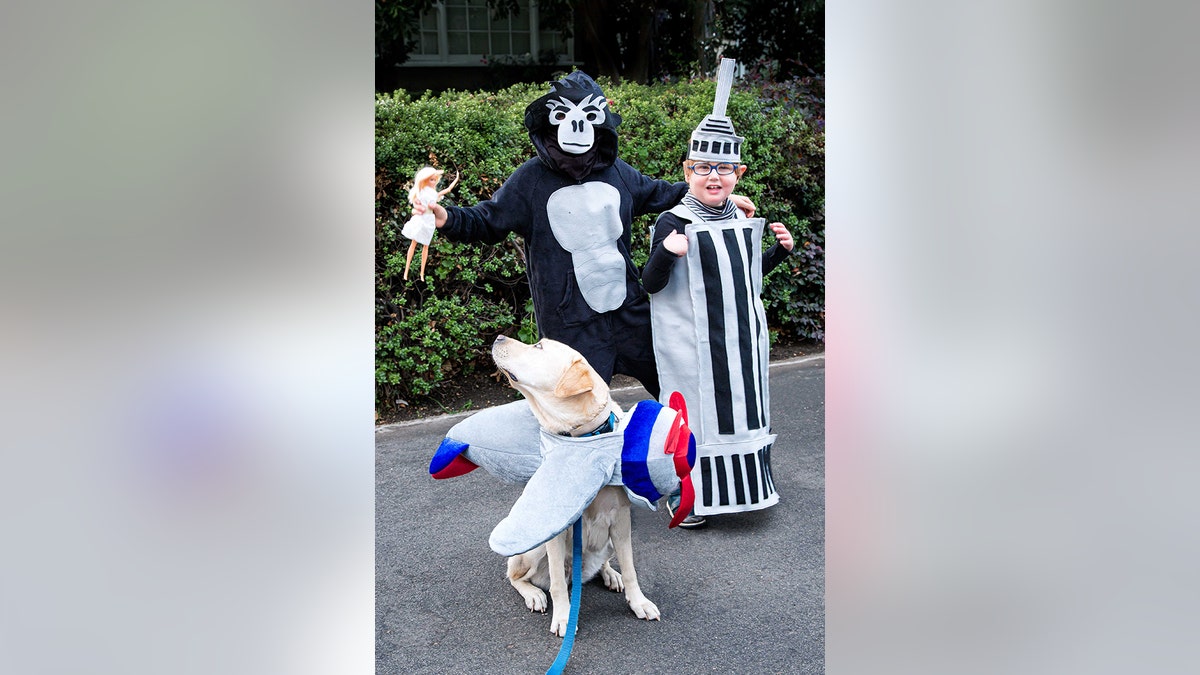
Coleman's kids, Sean (left) and Aaron (right), are dressed up in homemade "King Kong" costumes, with family dog, Heddie, as the airplane. (Kelley Coleman)
"For children who prefer privacy, would they want that information broadcasted? For children who prefer to share their neurodivergence, perhaps this is something they are proud to display."
The conversation should be between child and parent, Coleman stressed, regardless of communication level, and should "center their experience and preferences."
"The blue bucket can be a teaching tool for others; however, it should never be about others — it should always be about your child."
"In an ideal world, all adults would understand that not everyone communicates the same way, and that one's ability to communicate does not indicate one's interest in candy," she said. "But, the reality is that not all adults know this."
CLICK HERE TO GET THE FOX NEWS APP
"It's exhausting teaching others to be inclusive," Coleman added. "So, yes, the blue bucket can be a teaching tool for others; however, it should never be about others — it should always be about your child."
Madeline Farber contributed to this report.










































